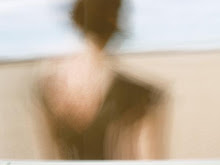So many things in my head right now. I am at the height of my research creativity currently and things are whirling around in my mind all together like a blender. I am finding that I need to discipline myself to not just go all-out on every idea I have as it comes to me. Recently this kind of research tactic has been wearing me out and pulling me in a billion directions at once when I should really be focusing on one or two things at a time for the best results.
My research encompasses so many interesting things. Obviously I get into ancient cultures, specifically during the
Mesolithic/Archaic time period (between 10000-3000 years ago), but I also do a lot of work on past environments, climate change, animal ecology (roe deer are solitary animals, red deer arent), hunting techniques, subsistence practices, sedentary vs. nomadic lifestyles. Each of these topics have thousands of offshoots of their own and if I get stuck wandering down one of these paths I could be gone for hours.
During my research this week, Ive come across many interesting things. While looking for possible images of deer hunting in ancient Scandinavian art I came across this haunting etching. I just couldnt get it out of my mind after I had first seen it. It depicts
seidmen, practitioners of the traditional Norse pagan religion, being tied down in a bay during low tide to face their impending death by drowning when the tide came in. This was a practice ordered by
King Olaf of Norway in his process of the Christianizing of Scandinavia.

Continuing to look for artistic evidence of dog hunting, I came across this great find. This will undoubtedly become a key piece in my theory of dog-assisted boar hunting in Japan. It is taken from a ceremonial brass bell from the
Yayoi culture (staring about 3ooo years ago) in Japan. Though they were rice agriculturalists, they were known to depict traditional practices (in this case, Jomon ancestors hunting boar) on their ceremonial brass pieces. Dogs holding down a boar while the hunter shoots it. Brilliant! This fits with my research perfectly.

Finally, another Japanese piece from the site of Fujioka, a clay dog figurine. The only piece of its kind ever found.

Currently Japan holds one of the most prolific records of intentional dog burials during the Mesolithic period. There are said to be over 200 burial sites in central-eastern Japan. The problem is that there is little to no archaeological literature about these burials in English. The spread of this knowledge has been lost to western scholars because they simply arent aware of it. I am working to rectify this situation. I am currently in the process of getting a mass of Japanese archaeological literature (which has been generously shared with me by numerous Japanese scholars) translated and published so western archaeologists can join the discussion about what is happening at
Jomon (Japanese culture group from about 14000-3000 years ago) sites per the zooarchaeological record. It is a lot of work, but I think it can make a real contribution. I am also working to prepare an application for a large grant to support my visiting both Japan and Taiwan to do ethnographic work with native boar hunting groups there as well as examine the Japanese dog collections.














